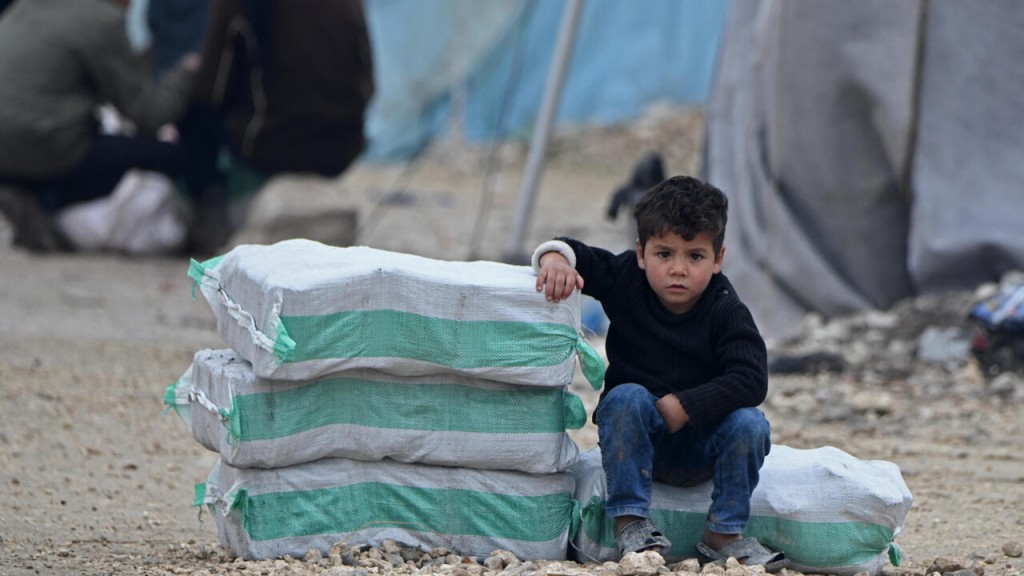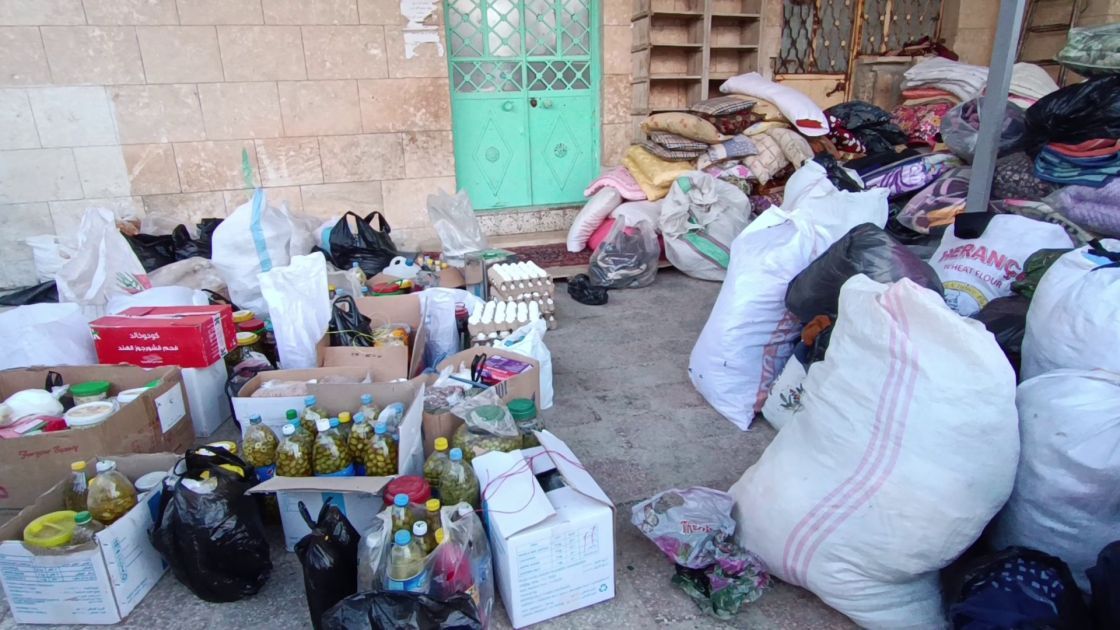- Articles
- Posted
For the US, Whoever Provides Syrians with Humanitarian Aid is Guilty Until Proven Innocent
The US Treasury’s Office of Foreign Assets Control (OFAC) issued a decision on February 9, titled “Authorizing Transactions Related to Earthquake Relief Efforts in Syria”. In its preamble, the decision states that “all transactions related to earthquake relief efforts in Syria that would otherwise be prohibited by the Syrian Sanctions Regulations… are authorized [until] August 8, 2023”. The US bragged about this step as evidence of its “humaneness” by providing a “humanitarian exemption” in response to the catastrophe that befell the Syrian people as a result of the earthquake that struck Syria and Turkey shortly after 4 am last Monday, February 6.
This decision requires pondering and looking at it from different angles, especially since US sanctions – and Western ones in general – are supposedly designed according to those imposing them in a “smart way” and do not include or affect the Syrian people, and have exemptions that guarantee not affecting anything relating to humanitarian, medical, and food aid, etc.
So, the first question that arises is why is there a need for a separate decision related to yet another humanitarian catastrophe that allows related transactions if to begin with anything related to humanitarian aid is exempt from sanctions?
Review of the “humanitarian exemptions to sanctions”
Kassioun has published many articles about sanctions on Syria since the beginning of the crisis, especially after Western, especially American, sanctions started getting increasingly imposed on Syria since 2011, which came in addition to existing US sanctions, the first of which was in 1979, and which are still in effect. These articles explained many aspects of the disastrous effects of these sanctions on all aspects of life in Syria, especially the economic aspect, and how the plunderers and warlords benefited from the sanctions, while Syrians paid the price and were actually the only ones targeted by these sanctions.
At the same time, the US, and behind it the Western countries, tried to claim that these sanctions do not target the Syrian people and include exemptions to ensure sanctions do not affect the people, including foodstuffs, medical supplies, and humanitarian aid exemptions. Since this lie was repeated a lot by those who imposed the sanctions and their Syrian followers, as if repeating it extensively makes it true, Kassioun devoted several articles to looking into this issue and revealing the truth about what they called the “humanitarian exemptions” to the sanctions.
An article published by Kassioun nearly two months after the “Caesar Act” entered into force, which was also during the critical period of the COVID-19 pandemic, explained that in the “Caesar Act” – which is considered one of the most suffocating sanctions programs imposed on Syria – “the only thing mentioned about a humanitarian exemption… provides the relevant organizations with very little guidance with regards to whether or not they can proceed with their activities without being penalized”. While the “Caesar Act” on its face “provides a lot of detail as to the sanctioned activities; nevertheless, many parts of it give a lot of discretion to the President and other entities within the US government to make determinations based on things such as ‘national security interests of the US’.”
One aspect that the article highlighted was the legal aspect on the basis of the well-known legal rule that is followed – at least in theory – everywhere, which is that “a person is innocent until proven guilty”. However, the way the “Caesar Act” is applied assumes that the entities working in Syria or with Syria are guilty until proven innocent. The article specifically talked about humanitarian aid that is supposed to be exempt from sanctions, except that “entities trying to provide humanitarian assistance have to get the humanitarian exemptions to sanctions”, which is time-consuming and very costly. This “puts them in the position of having the burden of proof that they are not violating the sanctions before they even take any action” to do any humanitarian work or provide any humanitarian service or assistance.
In addition to clarifying the negative effects and burdens on humanitarian work under the “Caesar Act”, the importance of shedding light on this issue at the time was that it was amid the COVID-19 pandemic, that is, at a time when countries were in greater need for facilitations to confront the pandemic that claimed millions of lives around the world. It is useful to recall here that the “Caesar Act” entered into force with these “humanitarian exemptions”, which imposed more challenges and obstacles to humanitarian work in mid-June 2020, that is, about three months after the pandemic paralyzed the entire world. With the application of “Caesar”, its disastrous effects on the ability to respond to the pandemic in Syria were clear from the outset, and it was clear that its impact was inhumane as well as illegal.
Kassioun published another article at the end of 2020, when the pandemic was still hampering many aspects of life, including education, which prompted most countries around the world to resort to “distance education”, and virtual education services were provided by the governments that could provide it or through educational programs via virtual platforms. In that article, we looked at the sanctions that supposedly exclude everything that could negatively affect civilians by virtue of the “humanitarian exemptions” and saw that these sanctions were the pretext for depriving some Syrian students from receiving education. Based on this, the conclusion was that either there are actually no “humanitarian exemptions” in these sanctions, or that education is not a humanitarian issue.
The latest decision and what is behind it
As mentioned at the beginning of this article, the decision issued several days ago as exemptions authorizing “all transactions related to the earthquake relief efforts in Syria that would otherwise be prohibited under the Syrian Sanctions Regulations”, and as this brief decision states, this includes “the processing or transfer of funds on behalf of third-country persons to or from Syria” and that “US financial institutions and US registered money transmitters may rely on the originator of a funds transfer” in connection with earthquake relief efforts.
The decision excludes “importation into the United States of petroleum or petroleum products of Syrian origin” or “any transactions involving any person whose property and interests in property are blocked pursuant to the [Syrian Sanctions Regulations], other than persons who meet the definition of the term Government of Syria, … unless separately authorized”.
For more than a decade, the US has repeatedly said that there are already “humanitarian exemptions” to the US sanctions imposed on Syria, and especially during the last two and a half years since the “Caesar Act” went into force. The US has repeatedly responded that these “exemptions” were put in place to ensure that the Syrian people are not affected by the sanctions and that what is targeted is the Syrian regime, based on which the US refused to ease the sanctions, and even tightened them further through “Caesar”, which enabled the US to target any party in the event of violating these sanctions. In light of all this, it is not clear why there is a need for exemptions to respond to a purely humanitarian catastrophe like the one that occurred on Monday, February 6?
The simple answer is that this is a clear admission that in reality, as noted in many previous Kassioun article, there really no such thing as a so-called “humanitarian exemptions” in US sanctions.
What is strange is that the US State Department spokesperson, Ned Price, said in a press briefing the same day the decision was issued: “There are many hurdles to overcome when providing humanitarian assistance in Syria and especially after devastating earthquakes this week, but our Syrian sanctions policy is not among them”. It is not clear whether this was before or after the decision was issued, but at the same press briefing, Price said: “In Syria, U.S.-funded humanitarian partners have been responding, including with U.S. resources, since the moment the earthquake struck”. This means that since the earthquake struck, US funding has been supporting the earthquake response, which suggests that according to Price, there was no need for the decision, since he also said that the Syrian sanctions policy does not hinder aid.
One reporter asked Price: “the sanctions that are in place, will stop access by the Syrian Government to equipment that it may need. Another thing is, under these laws also, Syrians are unable to send money to their families… will the U.S. Government, let’s say, lift restrictions or create like a temporary kind of a thing for Syrians to send in – to send money to their families that are in larger amounts than $400 through the American banking system?” In his response, Price said: “We have worked very closely within our government, within the UN system, with financial institutions over the course of our Syria sanctions program to update and, when necessary, to clarify the authorizations that are in place, in some cases granting additional authorizations, to make crystal clear to everyone that we are in no way impeding the flow of humanitarian aid to the people of Syria”. He later repeated in response to another questions: “We don’t have sanctions on humanitarian assistance”.
From the context, and precisely because nothing was mentioned about the OFAC decision issued the same day, it appears that this press briefing came before the decision was issued, or perhaps the letter containing the decision had not yet arrived from the US Treasury building to the State Department building, both of which are in Washington and less than 2 km apart. Price also clearly says that there are no hurdles under the US sanctions imposed on Syria and that they did not prevent the response to the earthquake, at least in the first three days after its occurrence.
Therefore, we can say that the “humanitarian” motive regarding the earthquake response was not the real justification for OFAC’s decision and these additional “humanitarian exemptions”.
Furthermore, an OFAC press release regarding the decision stated that according to the decision “U.S. and intermediary financial institutions should have what they need… to immediately process all earthquake relief transactions. If persons, including financial institutions, are engaged in disaster relief activities for Syria, but they believe their activities are not covered by existing authorizations or exemptions, those persons are encouraged to contact OFAC directly to seek specific licenses or guidance”.
This clearly means that the US grants itself the exclusive right to assign the “humanitarian” label to any kind of aid, and also to remove that label. That is, any humanitarian aid that can reach Syria should be with the knowledge and approval of the US, which also means that politicizing and controlling aid in a way that serves US policy in Syria is a top priority for Washington, and humanitarian relief itself never was, nor is now, of any interest to Washington.
What is noticeable is that some of the regime’s extremists, as well as some economic mouthpieces known to be directly linked to major corrupt individuals, began right away praising the US, making promises, and raising expectations about what options could come Syria’s way as a result of this US decision. This is not surprising, of course, for them, because what is happening between Syria and the US is a temporary misunderstanding that they hope will be resolved as soon as possible. Those same figures look at the alliance with Russia, Iran, and China as a temporary alliance, which they hope to get rid of soon.



 Reem Issa
Reem Issa